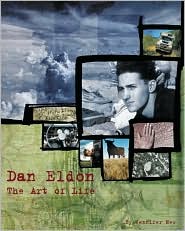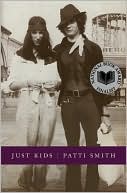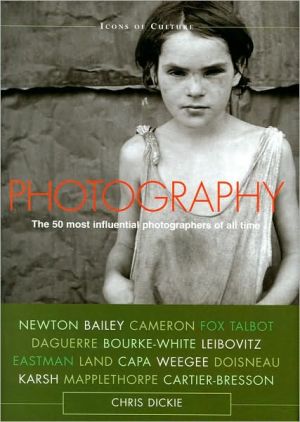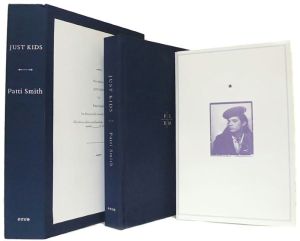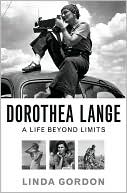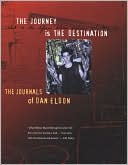Dan Eldon: The Art of Life
Only 22 when he lost his life on assignment in Somalia, photojournalist Dan Eldon left behind much more than the journals that became the basis for Chronicle's best-seller The Journey Is the Destination. He left a lifetime of adventures that continue to inspire. Raised in Kenya, he took numerous expeditions across Africa that helped him to understand and love the continent. Through his safaris and benevolent crusades--and with interludes of study and work in the US and London, and trips...
Search in google:
Only 22 when he lost his life on assignment in Somalia, photojournalist Dan Eldon left behind much more than the journals that became the basis for Chronicle's best-seller The Journey Is the Destination. He left a lifetime of adventures that continue to inspire. Raised in Kenya, he took numerous expeditions across Africa that helped him to understand and love the continent. Through his safaris and benevolent crusades--and with interludes of study and work in the US and London, and trips around the world--he crafted a philosophy of curiosity, creativity, adventure, and charity. Intensely visual, like the life it describes, Dan Eldon: The Art of Life is more than a biography. It is an exploration of one man's will to take in everything life has to offer; an example of a life lived for art, and art experienced as lifPublishers WeeklyEldon's powerful photographs of the escalating war in Somalia were instrumental in bringing international attention to that troubled region, and he seemed poised on the brink of an important career as a Reuters photojournalist when, in 1993, at the age of 22, he was stoned to death by a Somali mob. The posthumous The Journey Is the Destination, based on his journals, was one of the most enthusiastically received books of 1997. Eldon's youthful mastery of a fluid and vibrant collage style derived in part from the similar journals of Peter Beard, but charged with originality fully justified their publication. New's biography allows for a further selection from Eldon's 17 volumes of journals, which fittingly dominate the text both visually and thematically. Unfortunately, Eldon was in many ways a typical young man, confused, temperamental and capricious, if extraordinarily driven, and the hagiographic tone of this book is at odds with the details of his life. It is very hard to resist the temptation to make a cult of those who die young and full of promise, a temptation that New, an educational consultant in Iowa City, does not always avoid. And even granting the intrinsic interest of the journals, they are still clearly the apprentice work of someone who would have gone on to further discourses. (Oct.) Forecast: As the flipside to the young, introspective collagistes like Sabrina Ward Harrison (Brave on the Rocks, etc.), Eldon's life and work set an example of engagedness that might be tough to emulate, but should inspire younger readers. A film is in the works. Copyright 2001 Cahners Business Information.
\ \ Chapter One\ \ \ epigraph\ \ \ S Mon.\ I am on the airplane now.\ Virgin, London to L.A.\ I want to do great\ things in my life. I want\ the plane to land so I\ can start. This only\ problem is where do I start.\ What do I do when I\ get off the plane to\ do great things?\ Is University the best\ place for me? Should do\ I take off with my camera\ to El Salvador. Listen to\ what you heart tells you,\ you say. Well I'd like to\ rip the little bastard out\ and interrogate him with a\ 12 volt car battery.\ \ \ discovery\ \ \ No one remembers exactly how the bag arrived at Mike Eldon's home in Nairobi, only that it took several weeks after Dan's death to get there. It was a black nylon military bag, something he'd come by in a trade with a Marine, the same way he'd accrued several pairs of combat boots and other military paraphernalia. Mike put the bag in the middle of Amy's bedroom floor. Along with Donatella Lorch, a New York Times reporter who had been stopping by the house regularly since the news hit on July 12, they slowly went through its contents.\ At first Amy Eldon was reluctant to open it. As with so many things, she couldn't help but think, "This is the last time ..." The last time she'd unpack her brother's bag. The last time these things would be sent. But then the converse feeling set in, the almost desperate need to tear into it, to touch and smell what was inside. She had already been in Dan's bedroom, laying her head against his pillow and sifting through his belongings. These things, however, had been with him last and bore the freshest remnants. What had been merely a toothbrush or old pair of sandals now carried new significance; if one looked hard, they might reveal some truth or message.\ The leather vest was on the top. Dan wore it so often that it had become his trademark—surely it had been too hot for Somalia. A pile of carefully folded T-shirts was also there, including several of Dan's own design and a well-worn Tusker beer shirt. Underneath, she found a kikoi, some blue jeans, and a pair of sunglasses, a cheap copy of the Ray Bans he always wore. She fished out some books farther down: Goethe, Vonnegut, and the explorer Wilfred Thesiger. Opening the latter, she saw that Dan had been underlining passages, one of which caught her eye: "I have often looked back into my childhood for a clue to this perverse necessity which drives me from my own land to the deserts of the East."\ Next to Amy, Donatella was rummaging through a box of cassette tapes that had arrived with the bag: Somali music, reggae, Dan's own mixes, and Edith Piaf. Donatella laughed at the sight of the Piaf tape, recalling how Dan had brought his small boom box down to the hotel cafeteria and they'd all sung along to "La Vie en Rose." Such funny music for a guy his age, she'd always thought. Amy stopped her excavation, remembering how the previous Christmas she and Dan got caught in a rainstorm on their way home from lunch in downtown Nairobi. Dan's Land Rover no longer had a top—he'd had it cut off—so they were thoroughly soaked as they cruised through the streets as Edith purred, "Je ne regret rien." Donatella smiled at the image. She was getting a fuller sense of the person she had known only in a war zone. Earlier, Amy had shown her photos of Dan's girlfriends and, to Donatella's amusement, there were dozens. Seeing Dan's bedroom had also been enlightening; in so many ways, it was still a kid's bedroom. She had to remind herself how much of a kid she had been at twenty-two.\ As though to cast a smirk on the high-mindedness of the books, some Somali daggers—additions to a weapons collection Dan had started in his G.I. Joe days—and several packs of Marlboro Reds were toward the bottom of the bag. Amy took the cigarettes and shoved them under her bed when her father wasn't looking. She had hidden Dan's habit from their parents for years, and although they both knew about it—the war in Somalia had made him a chain smoker—her gut instinct to protect him remained. Going through her brother's pockets, she pulled out wads of cash, not just tens and twenties, but fifty- and hundred-dollar bills.\ "Yes," her father said, showing her several more bundles of cash he'd found. "It must be from the postcard and T-shirt business. He was doing well." Mike smiled at his son's innate entrepreneurial habits. Dan had started the business on the side about six months earlier, selling items he'd designed and had printed to UN soldiers and aid workers. It nicely augmented the money he made from his work as a stringer photographer for Reuters. Donatella added that everyone carried pretty hefty wads of cash in Mogadishu. It took a lot of money to buy one's way around, she told them, recalling how hardly any bargain was sealed without a few hundred-dollar bills changing hands.\ On the very bottom was something Amy and Mike both could have predicted would be there, though they had forgotten until now. Amy held the large black-bound journal in her lap. It was eight by eleven, the same size Dan had been using for years. This one was still thin, not yet stretched by the sheer mass of objects, glue, and paint with which he layered the books. Gently, she flipped through the pages. About fifteen of them, not even a quarter of the book, had photographs pasted in, either a single five-by-seven image or a series of smaller photographs. And then the pages went blank. Amy snapped it shut. The bareness, even the unadorned photographs over which he had yet to draw or glue more layers, was too strong a reminder of the life that would not be lived, the life that previously had been the inspiration for filling page after page. Suddenly, the pages had come to an end.\ \ \ * * *\ \ \ Less than a month before, Dan had been in his father's comfortable house where he had a bedroom, complete with a veranda as well as a private bathroom where he took long soaks while opera played full blast from the stereo and a collection of candles flickered. On the most recent visit, he had straightened some of his notorious mess, exposing long-covered surfaces. He had also given driving lessons to a friend and taken another to visit her family's home for a last time before the property was sold. The entire Eldon household, including the cook, gardener, and house guests, had played rounds of volleyball in the garden. In the evening, Dan had sat with his father, who was recuperating from a car accident, and the two had read the daily paper or Dan had worked on his journals. He'd called both his mother in London for her birthday and his younger sister, Amy, in San Francisco, where she was finishing up an internship before heading to Mexico City for a summer job. He listened with amusement to details of her urbane, American life. She'd been at a gay pride rally that day, taking in one of the city's biggest festivities with friends, and then had gone to a trendy little restaurant in the evening. Nairobi may not be San Francisco, he told her, but it felt quite cosmopolitan after Mog. "I went dancing last night and never even worried about having a gun stuck in my face," he quipped, taking a drag on his cigarette.\ \ \ To some who saw him during that visit, Dan seemed tired and depressed. Twelve months of covering a grisly civil war and famine were surely wearing on him. He looked different. It wasn't only the slight beard he was sporting; his eyes were darker, his body more spare. Others, especially his journalist friends and his father, thought he was in good form. He wanted out of Somalia and was beginning to consider what to do next. His entire adult life—all five years of it since graduating high school—had been lived in quick bursts, from project to project. Another assignment for Reuters or film school in California were both on his radar, though as usual he would wait until the last minute to decide, leaving much to fate.\ More immediate, however, was his desire to go on safari. Ironically, he'd been in Mogadishu longer than he'd stayed anywhere else. He was itchy to travel. A few of his old mates were in town and they had gone with him to the Carnivore, a favorite club, to make plans for the summer. Afterward, he'd called Soiya Geeaga, his old friend and sometime girlfriend, in London, encouraging her to come to Nairobi soon: "We have so many safaris planned. You've got to come!" Without telling him, she made arrangements to fly in as soon as he got back from his next stint in Mogadishu on July 13.\ \ \ * * *\ \ \ Instead of shorts and tank tops, Soiya's bag had a simple black suit in it when she arrived in Nairobi a few weeks later. She didn't come for a safari but for a funeral. As she'd readied herself to go home to Kenya, the call had come: Dan and three other .journalists were killed on July 12, 1993, while covering the aftermath of a bombing in Mogadishu. Dan had worked extensively in the wartorn country for the past year, and Soiya had telephoned many times to wish him well, heeding him to take care. This was her worst fear come true.\ Three days after his death, Soiya, and Dan's many other friends, and his family gathered at one of his favorite places. On the sloping backside of the Ngong Hills just before they give way more steeply to the dramatic expanse of the Great Rift Valley, they celebrated his life. Just the month before, his photographs had appeared in Newsweek and Time magazines, as well as on front page of newspapers like the (London) Times. These successes were certainly mentioned, but there were many more facets of his complex, chameleon-like personality to celebrate as well: entrepreneur, adventurer, artist, motivator, philanthropist, lover, friend, son, prankster, life of the party, master of disguise. With sobs, laughter, and song, in English and Swahili, his life was paid tribute.\ Returning to Mike's house after the ceremony, friends and family looked through Dan's journals, the large books of collages and photographs he had been making since he was a teenager. There were about eight journals in the house that night, but over time more would be found—including several small ones he'd done as a child—bringing the total to seventeen. Held on the laps of American cousins, high school pals, embassy workers who knew the family, his paternal grandmother, and so many others, the books gaped open, overflowing with coins, feathers, rice, call-girl cards, and Christmas tinsel.\ Like their author, the journals are big. They take up space in the way that people who are charismatic, brash, and youthful do. They are messy—which also describes Dan. "Dan didn't like things neat. He didn't like lines," many of his friends remembered about him that day. He was a chaotic mix of talents, moods, and destinations. And like his journals, in which he superimposed images from trips that occurred years apart, confounding the original order in which they took place, he resisted linearity at every turn.\ Already on that sunny day at the celebration, a myth was being born—a myth of a person who was bigger than life, a saint. Just shy of his twenty-third birthday, Dan had traveled to more than forty countries, led a group of young people through southern Africa to deliver the sizable money they'd raised for a refugee camp, and been among the youngest Reuters photographers ever, helping to alert the world to the tragic famine in Somalia. His prolific, boundless energy is one of the first things people recall about Dan; he certainly accomplished a lifetime's worth in a brief period. But for all of his good, he wasn't a saint. Some of his best friends almost immediately rallied to remember Dan the regular guy, Dan their friend, who had his flaws. He could be moody and was almost obsessively protective and jealous of the women in his life. He was generous, providing loans and gifts without question, but could suddenly nitpick over a small sum. Overall, he'd been a strong student and a witty writer and orator, but his math skills were abhorrent; he'd teasingly threatened to excommunicate Amy from the family if she did better than him in math. His flamboyant style—he had a penchant for masks, disguises, and costumes—amused many, but made others uncomfortable.\ \ \ While Dan may have had his regular-guy traits, he was undoubtedly blessed with an unusually good set of life circumstances, not the least of which were his family and his home. His immediate and extended family supported almost every new thing he wanted to try (sometimes after Dan charmingly convinced them) and every new place he wanted to see. They provided him not only with financial backing, but with love, encouragement, and role models. And they brought him to Africa. He moved there when he was seven, and no matter where he traveled, he always returned. There probably wasn't a better place in the world for someone with Dan's adventurous spirit to live. It challenged and delighted him; it served as both his teacher and his canvas.\ Rather like his fondness for the 1930s French singer Edith Piaf, another quirk of Dan's that seemed out of place for someone his age was his frequent use of aphorisms. At nineteen, he'd even created a mission statement for himself: Safari as a way of life. He sometimes signed his letters "Live and die on safari" and repeated certain sayings throughout his journals: Don't run your body like no gas station. Fight the power. Look for solutions, not problems. Seek clarity of vision. Although Dan employed such grand statements with a wink, always underlining them with humor, he believed in them nonetheless. In the journals, he combined these words with vibrant imagery, exploring life's poles, good and evil, beauty and ugliness. The end result is a sort of road map for living, formed out of years of roaming.\ Many people sensed, both during and after his life, that he had a clearer vision than most of us. Perhaps it was his impish, mischievous grin. Even more so, it was the way he managed to follow his dreams, no matter how unlikely they sometimes appeared. The questions he asked and tried so hard to answer through his art and his wanderings are the same questions many people ask when they plunk down money on therapy or self-help books. Instead of finding answers on the couch or in words, Dan was more apt to find them in a sweaty hotel in Casablanca, on a desert drive outside Los Angeles, or in the backstreets of Nairobi. Could it be that with his quick wit and singular way of looking at the world, he was closer than others to life's so-called answers? This certainly is the lure of the journals: the inquisition and revelation embedded in their pages, the vivid representations of his search and what he discovered in his short life but long journey.\ \ \ blind date\ \ \ Friends and family who watched their unlikely relationship blossom must have wondered what kind of children Mike Eldon and Kathy Knapp might have. What would the overlap of two such different people produce?\ Mike is a dark-haired Romanian Jew with the accent of his adopted British homeland. He has a knack for both Monty Python-like humor and impeccable manners, and can by turn be reserved or droll, dressing up as James Bond for a night on the town with his children and meeting the next morning with a minister of state. Kathy is an American midwesterner, tall with red hair and eyes that squint when she smiles, which is nearly all of the time. She lights up rooms with her raw vitality and has been known to topple over a glass of water or trip up the stairs in her exuberance. Mike weighs a situation; he listens and tests. Kathy plows ahead, assuming only the best, gambling on intuition.\ The two would eventually fly around the world together, so it was no wonder their children would turn out to be vagabonds at heart.\ But the romance started in a much more prosaic way. It was 1967, the Summer of Love in parts of the world. In Cedar Rapids, Iowa, it was another hot, long season of tennis matches and trips to the ice cream shop. When Mike Eldon, an economics student from London, showed up for an internship at the Quaker Oats plant, he was quite out of his realm.\ When he had gotten the assignment, he'd been told that Cedar Rapids was "near Chicago." Anticipating occasional trips to the city, he was disappointed to learn that "near" actually meant a five-hour drive. Arriving in town via Greyhound on Fourth of July weekend, he found himself in a sleepy town that seemed downright provincial compared with London. Neither his accommodations at the YMCA nor his patronizing supervisor on the job made him enthusiastic about staying. He contemplated an early departure until a program for international students matched him with an interesting local family.\ Soon, he was one of the more popular guests on the local social circuit. It was the height of Beatlemania, and a British accent went far in Iowa. He was sought after for church picnics, dinner parties, and badminton matches. One friend attempted to set him up on a date, thinking a French exchange student was a good choice. They were paired that evening with another blind-date couple, Kathy Knapp and a reporter for the local newspaper. Although the geography of the pairings made sense—like-continents together—chemistry is blind to maps or miles. By the end of the night, Mike and Kathy were clearly much more interested in each other than in their appointed dates.\ Kathy was working for the summer at a girls' camp, sequestered away in the woods, and had little time for romance. After their first meeting, Mike impressed her by managing to penetrate the camp's long-standing rule against phone calls from potential suitors. The only men who ever got through were fathers. Again, a British accent went far in Iowa.\ It was a brief romance, and all that Kathy was left with come August was a photograph of Mike standing on the banks of the Thames. She went back to Wellesley College and set up a jewelry-making business, the proceeds from which paid her way to London for Christmas. It was a fleeting visit but, along with many letters and a few costly, static-filled phone calls, it proved sufficient. In the fall of 1969, in an interdenominational service that employed the attending Methodist minister's entire knowledge of Judaism, Mike and Kathy were married.\ Despite his initial misgivings about Cedar Rapids, Mike was happily impressed by his new in-laws. Kathy's entire family, especially her parents, Russell and Louise, were well-traveled, sophisticated people who would not be out of place in London. They also had commitments and a web of relationships that were particular to small-town life, which Mike found a refreshing contrast to urban anonymity. Their interests and support extended to the local college, the hospital, the symphony, and the Methodist church. It was a melding of business, family, and community that Mike would eventually emulate in Nairobi nearly a decade later.\ By the time of the wedding, Mike was already employed as an account manager at a computer company for two years. He and Kathy got a flat in Hampstead, near his parents. She taught art at the American School, trying to meet people and stay busy while Mike worked long hours. Rather quickly, she was able to transfer her skills to motherhood. Dan was born on September 18, 1970, nine months after a tipsy Christmas party. The young parents painted his room bright yellow, built an indoor playground complete with a slide, and, presciently, bound and decorated little books in which to record family drawings and poetry.\ For his part, Dan was an easy, cheerful child. Perhaps his most distinguishing feature was his very British-looking, plump, rosy cheeks, which showed no hint of his eventual chiseled features. He attended a Waldorf preschool that emphasized the arts and later a British public primary school. Along with his sister, Amy, who was born when Dan was four, he spent time with his paternal grandparents and Kathy's sister's family, also living in London. To make more space following Amy's birth, the family left central London and moved to the suburbs. The uniformity of the new surroundings stifled Kathy. It was a reminder of the narrowness she'd gladly left behind in Iowa, though the London suburbs lacked the amiability of home. She felt hemmed in and dispirited. The kids were too young to mind, although she worried about what it might be like for them to grow up there; too gray, she thought, too quiet.\ Soon enough, the monotony was shattered. It came by way of a job offer: a stint for Mike at his company's office in Kenya. Suburban ennui was suddenly the least of their worries. They were moving to Africa.\ \ \ arrival\ \ \ There are as many Africas as there are books about Africa—and as many books about it as you could read in a leisurely lifetime. Whoever writes a new one can afford a certain complacency in the knowledge that his is a new picture agreeing with no one else's, but likely to be haughtily disagreed with by all those who believe in some other Africa. —Beryl Markham, West with the Night, 1942\ \ \ Excerpted from Dan Eldon by Jennifer New. Copyright © 2001 by Creative Visions. Excerpted by permission. All rights reserved. No part of this excerpt may be reproduced or reprinted without permission in writing from the publisher. \ \ \ \
epigraph8 discovery10 blind date16 arrival20 Dr. Croze, I presume30 lesharo36 trap door42 Nairobi streets52 karass56 nyati63 searching for open sky in an urban jungle68 sunrise74 NOW77 departure84 snap!106 mountains of the moon112 safari116 California dreaming123 muthaiga strategy132 the great one137 "Conflicts, bwana 154 We were nearly flying upstairs" in the east160 London164 traces of hell170 thanksgiving176 heartland186 a lion's tale192 nargus kapuri pan195 intermission202 mog210 darkness218 the mayor228 celebration258 afterlife268 acknowledgments274 glossary280 index282
\ Publishers WeeklyEldon's powerful photographs of the escalating war in Somalia were instrumental in bringing international attention to that troubled region, and he seemed poised on the brink of an important career as a Reuters photojournalist when, in 1993, at the age of 22, he was stoned to death by a Somali mob. The posthumous The Journey Is the Destination, based on his journals, was one of the most enthusiastically received books of 1997. Eldon's youthful mastery of a fluid and vibrant collage style derived in part from the similar journals of Peter Beard, but charged with originality fully justified their publication. New's biography allows for a further selection from Eldon's 17 volumes of journals, which fittingly dominate the text both visually and thematically. Unfortunately, Eldon was in many ways a typical young man, confused, temperamental and capricious, if extraordinarily driven, and the hagiographic tone of this book is at odds with the details of his life. It is very hard to resist the temptation to make a cult of those who die young and full of promise, a temptation that New, an educational consultant in Iowa City, does not always avoid. And even granting the intrinsic interest of the journals, they are still clearly the apprentice work of someone who would have gone on to further discourses. (Oct.) Forecast: As the flipside to the young, introspective collagistes like Sabrina Ward Harrison (Brave on the Rocks, etc.), Eldon's life and work set an example of engagedness that might be tough to emulate, but should inspire younger readers. A film is in the works. Copyright 2001 Cahners Business Information.\ \ \ \ \ BooknewsDan Eldon, the well-traveled son of an American mother and English father, grew up in Kenya and eventually became one of the first photojournalists to document the famine and anarchy in Somalia in the early 1990s. He died at age 23 while working for Reuters, stoned to death by a mob in Mogadishu reacting to a UN bombing raid. This handsome and touching biography includes many of Eldon's photos and collages as well as entries from his journals, excerpts from letters to his family, and memories from his many friends. The writer, an educational consultant based in Iowa, fell in love with Eldon's work the first time she saw it and became determined to use the art as a launching pad for educational materials<-->a project his family embraced. Annotation c. Book News, Inc., Portland, OR (booknews.com)\ \
